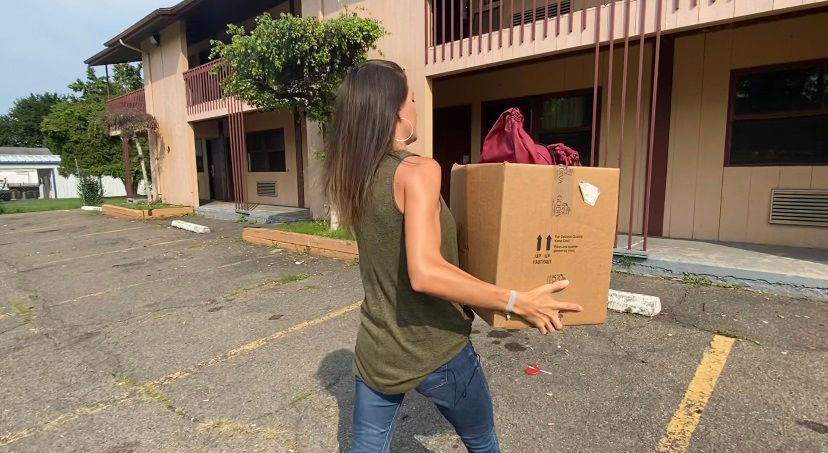Each day, Andrew Lunetta is one step closer to making a long-awaited vision come to life for some people in Syracuse.
“We have big plans here,” said Andrew, who is the founder of a Syracuse organization called A Tiny Home for Good. “We’re going to rehab a one-family and build three tiny homes in the back and do some work next door.”
Andrew’s been hammering away for the past four years, building 300 sq. ft. houses for the homeless and making veterans the top priority. His organization is called A Tiny Home for Good, and their latest project sits on Green Street.
“Pretty much all of if that doesn’t have to be hired out is done by a group of really dedicated volunteers,” said Andrew. “It doesn’t just go up in a day or two like you see a lot of these tiny homes in the TV show. There’s a lot of care and time that goes into making it work.”
This isn’t the first time Andrew has lent a hand. At just 30 years old, he’s created programs to help, feed and shelter homeless individuals, even becoming roommates with some.
“A big reason I’m doing this work is because I got to know those people who are homeless,” said Andrew.
Those friends have become family to Andrew, and he says they deserve a home.
Even on days when the rain sends most people indoors, their work continues outside.
“It definitely slows down the process, and there’s certain things we can and can’t do when it’s raining,” said Andrew. “But, it has to be done. No one else can do it.”
Andrew says they can push through any storm, even a pandemic.
Although his organization is hurting financially, his purpose remains priceless.
“Ultimately, what it did was reaffirm my faith in our work,” said Andrew. “Our tenants are people who, prior to our houses, weren’t able to stay home. They weren’t able to shelter in place. They were staying in a homeless shelter two feet away from someone else. So, I think that really our homes are responsible, some of the best lines of defense for our tenants who happen to be quite vulnerable.”
Andrew says they built 21 tiny homes so far and the goal is to complete six more by the end of the year.
Once finished, the homes are furnished. Residents will also have a case manager to help guide them down a better path.
“I’m not expecting everyone to go out and get their doctorate or go out and get real jobs that pay the bills forever,” said Andrew. “But, I want them to be healthier and safer.”
Andrew says it’s gratifying to see them have a place to call their own and a second chance.







